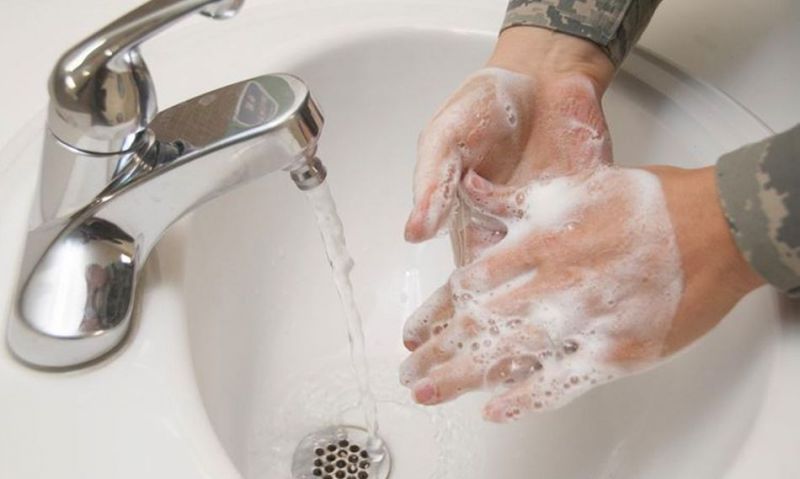
Questions and answers about the coronavirus
The coronavirus outbreak is rapidly evolving and there are many concerns and questions that American Legion Family members have. The best resources are health agencies like the Centers for Disease Control and Prevention (CDC), the World Health Organization (WHO), and state and local health departments. The following key questions and answers about the coronavirus have largely been assembled from the CDC website, the WHO website and elsewhere.
The flu happens every year. What’s the big deal about the coronavirus?
A person with the flu infects an average of 1.3 others. While health experts are still learning about coronavirus, they estimate that each person with COVID-19 will infect between two and four other people. Simply put, COVID-19 is expected to escalate quickly, leading to a significant number of cases and deaths, especially among those who are elderly or have existing respiratory conditions.
Still, coronavirus does not seem to be that fatal. How does it compare with the mortality rate for the flu?
Like the flu, older people (over age 50) are especially at risk. Same for those already in poor health. The World Health Organization estimates that the mortality rate of coronavirus is about 3.4 percent — around 100 times higher than flu. The mortality rate of coronavirus could range from 9 to 19 percent for older people, especially those with cardiovascular disease, diabetes or have other health issues related to compromised immunity.
There are billions of people on the planet, so my risks of contracting coronavirus are minimal. Correct?
The World Health Organization has determined coronavirus to be a pandemic. Health experts expect at least 1 billion people to be infected. With an estimated mortality rate as low as 2 percent, that translates to at least tens of millions of deaths globally. In the United States, experts estimate tens of millions of cases with more than 1 million dead.
So, are we all supposed to hide in our homes until the threat passes?
Right now you have probably noticed the cancellations of large-scale public events like sports competitions, business conferences and celebrations like St. Patrick’s Day parades. Many colleges and universities are also making changes like moving classes to online. The prevailing advice, at this time, is to engage in “social distancing.”
Because the virus is so contagious, limiting exposure to large groups of people will not only help protect you but others around you, who might be at an elevated risk. That’s why universities are being cautious. The risk is not necessarily for the younger students but to protect those who are older, and therefore more at-risk, such as faculty members, college staff and others on campus. By limiting the spread of the virus, we will not only save lives but allow our health-care system to focus more resources on fewer people.
Besides staying away from large public events, what should I do to protect myself?
The best course of action is to properly — and frequently — wash your hands with soap and warm water. Do not touch your face, nose and eyes. Additionally, here are some other tips:
• Don’t shake hands. Fist bumps are OK at this time.
• Use antibacterial rubs.
• Cover your mouth and nose when sneezing and coughing.
• Open doors with a shoulder, gloved or otherwise protected hand or your hip.
• Avoid unnecessary travel and public gatherings.
• If you are at-risk, consider wearing a mask.
How should our American Legion post operate during this time?
Follow the recommended guidelines, be safe and use caution. The situation is fluid, however, so be prepared to adjust as the situation warrants. And there is no one-size-fits-all solution since there will be areas harder hit by the virus than others.
One current recommendation is to avoid or cancel public gatherings of greater than 50 people. For some posts that affects their regular meetings. One thing to consider is to make the meetings available online so members can join in from their homes. Some posts already do this.
What is VA doing to protect patients, visitors and others at their facilities?
On March 10, VA instituted new safeguards aimed at limiting coronavirus exposure risk at its 134 nursing homes and other care centers. Most residents are older, and many have multiple complex health conditions, making them particularly vulnerable to infection. To minimize the risk of exposure, VA has:
• Adopted a “no visitor” stance, meaning no outside visitors will be permitted to see residents. The only exceptions will be in compassionate cases, such as when veterans are in hospice units.
• Suspended new admissions to all nursing homes.
• Implemented daily screening of nursing home staff.
Additionally, Richard Stone, Executive in Charge of the Veterans Health Administration, focused his presentation at the Legion’s Washington Conference on coronavirus precautions.
Will the onset of warmer weather slow down coronavirus?
It is unclear at this point. After all, right now there are countries such as Singapore that are dealing with the outbreak even though they are in a warmer climate. Additionally, we cannot let our guard down. The virus could slow down and then strike back harder when the temperatures recede again in the fall. Experts caution that this should continue through the summer, if not extensively longer.
Why isn’t there a vaccine available?
Vaccines are now being developed, but that takes time. Once tested and refined, it will take additional time to produce effective vaccines for billions of people.
